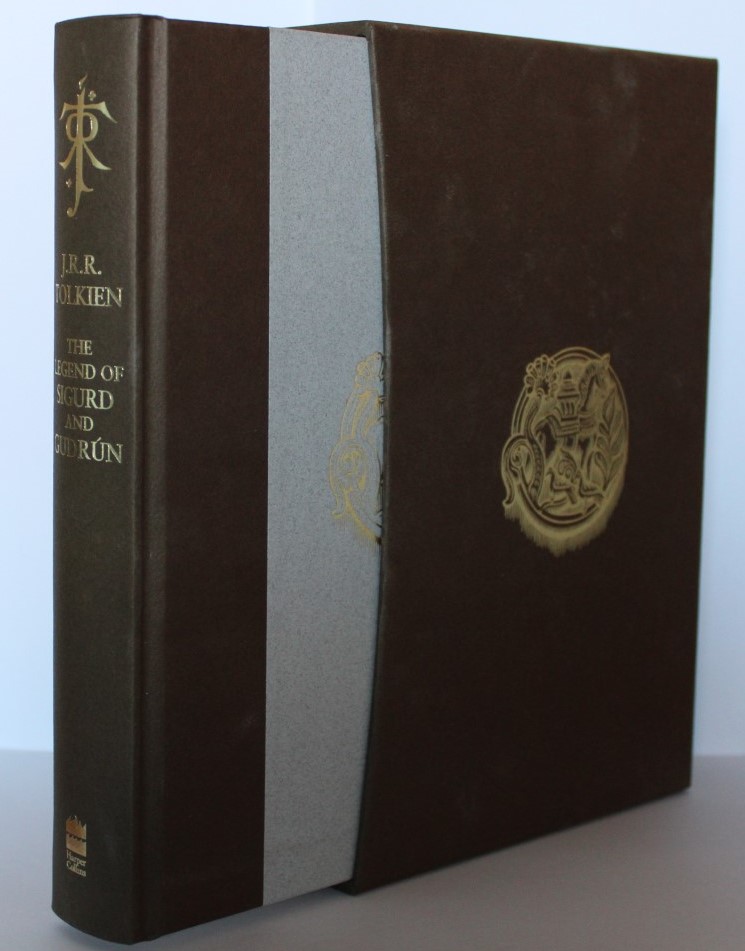Khamûl wrote:
From copyrights expiring to TCG members expiring. Thread derailment in 2021.
Yeah, I should set up a Kickstarter project to raise money to save me.
In the meantime, here's all of us arguing about the same thing two years ago...
https://www.tolkienguide.com/modules/n ... php?topic_id=3332&start=0

https://www.tolkienguide.com/modules/n ... php?topic_id=3332&start=0

Stu wrote:
I don't see how pure transcription of a text could give copyright to the transcriber.
Because there is no such thing as a "pure transcription". The job of an editor of a manuscript (especially a handwritten one, and more especially still one with layers of emendation) is more of interpretation than of mechanical "transcription". Check out my contribution, "Editing the Tolkienian Manuscript", to the forthcoming memorial volume for Christopher Tolkien, to see more precisely what I mean.
Aelfwine wrote:
Check out my contribution, "Editing the Tolkienian Manuscript", to the forthcoming memorial volume for Christopher Tolkien, to see more precisely what I mean.
So... when can we check this out? ;)
Aelfwine wrote:
Stu wrote:
I don't see how pure transcription of a text could give copyright to the transcriber.
Because there is no such thing as a "pure transcription". The job of an editor of a manuscript (especially a handwritten one, and more especially still one with layers of emendation) is more of interpretation than of mechanical "transcription". Check out my contribution, "Editing the Tolkienian Manuscript", to the forthcoming memorial volume for Christopher Tolkien, to see more precisely what I mean.
Like I say, I think that would be for the courts to decide if/when the time comes (and I very much doubt we would see consistent rulings on it).
This is also briefly, and interestingly, touched upon in Tolkien's Lost Chaucer where Bowers talks about Tolkien's style of editing. Point is, Tolkien's critical editions of these medieval manuscripts are most certainly works that were published and copyrighted in the 20th century. The editorial hand in these is legally seen as allowing copyright to be established, and that copyright to be held by those editors (&/or publishers). This, despite the works themselves being ancient and clearly not in copyright. Don't think Christopher is doing anything different with HoME.
Khamûl wrote:
This is also briefly, and interestingly, touched upon in Tolkien's Lost Chaucer where Bowers talks about Tolkien's style of editing. Point is, Tolkien's critical editions of these medieval manuscripts are most certainly works that were published and copyrighted in the 20th century. The editorial hand in these is legally seen as allowing copyright to be established, and that copyright to be held by those editors (&/or publishers). This, despite the works themselves being ancient and clearly not in copyright. Don't think Christopher is doing anything different with HoME.
But Christopher by his own admission was presenting texts with minor corrections. He was not translating texts bringing them into a modern form or editing them like Joshi was with Lovecraft. They are very different exercises.
I also feel we are (all of us) getting into the realm of guesswork here. None of us have a proper understanding of the laws, a cursory chat with my friend suggested we ask Tolkien Estate lawyers for clarification over it. They would know best.
onthetrail wrote:
Christopher by his own admission was presenting texts with minor corrections.
Have you read HoMe? That doesn't match what Christopher actually did at all. That's almost never how editing Tolkien's manuscripts works.
I'm assuming the copyright situation on Unfinished Tales is the same as on HoMe then? It's not as heavily edited as The Silmarillion but Christopher Tolkien admits to editing some of the texts for clarity purposes.
Aelfwine wrote:
onthetrail wrote:
Christopher by his own admission was presenting texts with minor corrections.
Have you read HoMe? That doesn't match what Christopher actually did at all. That's almost never how editing Tolkien's manuscripts works.
Yes. Christopher Tolkien says in the foreword to Lost Tales that "the texts are given in a form very close to that of the original manuscripts. Only the most minor and obvious slips have been silently corrected". I take that to mean his editorial presence is minimal. Certainly in regard of those volumes.












 4366
4366 1.98M
1.98M